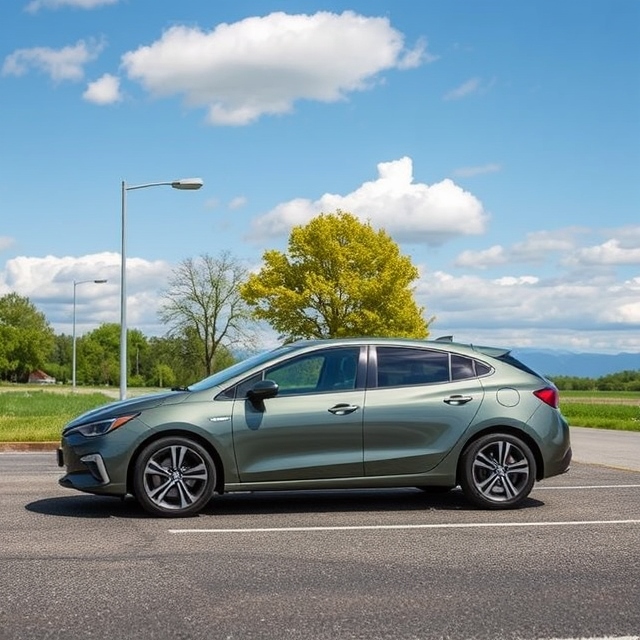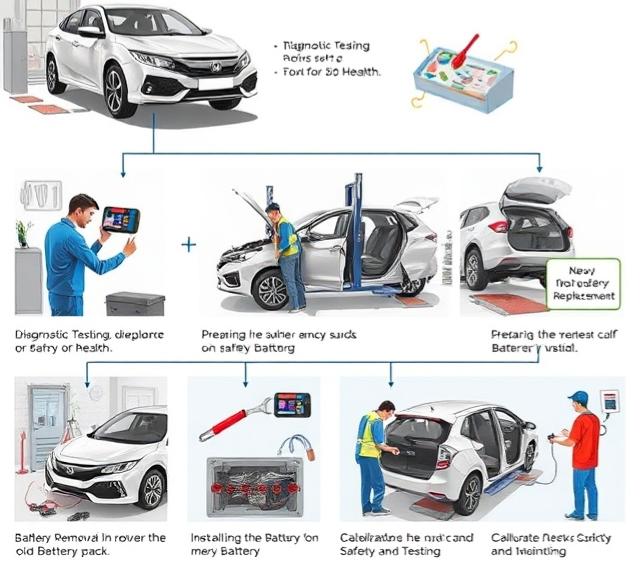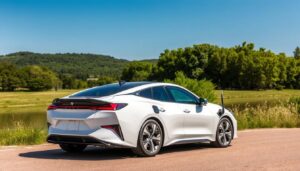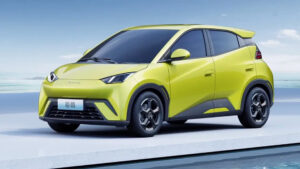
Introduction to Hybrid Batteries
In recent years, hybrid vehicles have surged in popularity, thanks in part to their fuel efficiency and lower emissions. Central to this technology is the hybrid battery, which powers both the electric motor and assists the gasoline engine. Understanding the lifespan of hybrid batteries, such as the Toyota Prius and Camry, is crucial for potential buyers and current owners alike.
What Are Hybrid Batteries and How Do They Work?

Hybrid batteries are energy storage systems designed to provide power for hybrid and electric vehicles. They utilize advanced technology to store energy generated during braking or from the engine, converting it into usable power when required. Here’s how they work:
- Energy Storage: The battery stores energy that can be harnessed to power an electric motor.
- Power Assist: During acceleration, the hybrid battery assists the gasoline engine, improving fuel efficiency.
- Regenerative Braking: When the vehicle brakes, the electric motor also acts as a generator, recharging the battery.
Different Types of Hybrid Batteries Available on the Market
There are several types of hybrid-batteries used in vehicles today, including:
- Nickel-Metal Hydride (NiMH): Commonly used in older hybrids, such as early model Toyota Priuses.
- Lithium-Ion (Li-Ion): Increasingly popular due to their higher energy density and lighter weight, used in newer models like the Toyota Prius Prime and Honda Accord Hybrid.
- Solid-state Batteries: Still in development, these batteries promise to offer better efficiency and safety.
Benefits of Using Hybrid Batteries in Vehicles

Utilizing hybrid-batteries in vehicles offers several key benefits:
- Improved Fuel Efficiency: Hybrid vehicles consume less fuel, significantly reducing running costs.
- Low Emissions: Reduced reliance on gasoline lowers the carbon footprint.
- Enhanced Performance: Hybrid-batteries deliver instant torque, enhancing acceleration.
Comparison Between Traditional and Hybrid Batteries
| Feature | Traditional Batteries | Hybrid Batteries |
|---|---|---|
| Energy Density | Lower | Higher |
| Weight | Heavier | Lighter |
| Lifespan | Shorter | Longer (often 8-10+ years) |
| Recharge Time | Longer | Shorter |
| Maintenance | More frequent | Less frequent |
How Long Do Hybrid Batteries Last?
Average Life of Hybrid Car Batteries
Many drivers often ask, how long do hybrid-batteries last? Generally, the lifespan of hybrid batteries can vary based on several factors:
- Battery Type: Lithium-ion batteries tend to last longer than NiMH batteries.
- Driving Habits: Frequent short trips may affect battery longevity.
- Climate: Extreme temperatures can impact battery performance and lifespan.
On average, hybrid-batteries, such as those in the Toyota Prius, have a lifespan of 8 to 15 years. Here’s a breakdown:
- Toyota Prius Battery Life: Typically lasts between 8 to 10 years or 100,000 to 150,000 miles. Many reports indicate some may last even longer.
- Toyota Camry Hybrid Battery Life: Similar to the Prius, around 8 to 10 years.
- Honda Hybrid Battery Life: Generally around 8 to 10 years, depending on the model.
- Lexus Hybrid Battery Life: Similar to Toyota’s, usually between 8 and 10 years.
Battery Longevity FAQs
- How long does a Toyota hybrid battery last?
- Most Toyota hybrid batteries last between 8 to 10 years.
- Do hybrid batteries go bad?
- Yes, like any battery, hybrid-batteries can degrade over time.
- Can hybrid batteries last 20 years?
- It’s rare, but with proper care and usage, some hybrid-batteries may achieve longer lifespans.
- Do hybrid cars require battery replacement?
- Yes. Over time, hybrid-batteries lose their capacity and need to be replaced.
Cost Considerations When Purchasing Hybrid Batteries
Replacing a hybrid battery can be a significant expense. A new battery for a Toyota Prius, for example, can range from $1,500 to $3,500 depending on the model and service provider. However, it’s essential to consider the long-term savings on fuel costs and emissions reduction when evaluating this investment.
Maintenance Tips for Prolonging the Life of Hybrid Batteries
To enhance the longevity of your hybrid battery, consider the following maintenance tips:
- Keep the Battery Cool: Extreme heat and cold can damage battery cells.
- Avoid Deep Discharges: Regularly charge the battery and avoid letting it run down to a low charge.
- Regular Vehicle Maintenance: Routine checks can help ensure all components, including the battery, function optimally.
Future Advancements in Hybrid Battery Technology
The future of hybrid-batteries looks promising, with significant advancements on the horizon. Research is focused on improving energy density and reducing costs. Emerging technologies like solid-state batteries could revolutionize how hybrid vehicles perform and significantly extend battery life.
Conclusion: The Future of Hybrid Batteries in the Automotive Industry
As hybrid technology continues to evolve, understanding how long hybrid batteries last remains crucial. While most batteries last between 8 to 15 years, advancements in battery technology may lead to even longer lifespans in the future. With the right care and understanding, drivers can maximize their vehicle’s performance and battery life, contributing to both environmental sustainability and cost-effectiveness.
Whether considering a hybrid vehicle for the first time or seeking to understand your current model’s battery life, being informed about hybrid batteries is more crucial than ever.
This article provides a comprehensive overview of hybrid batteries, addressing key questions about battery life and offering maintenance tips to maximize performance for consumers.







2 thoughts on “How Long Do Hybrid Batteries Last?”
Comments are closed.